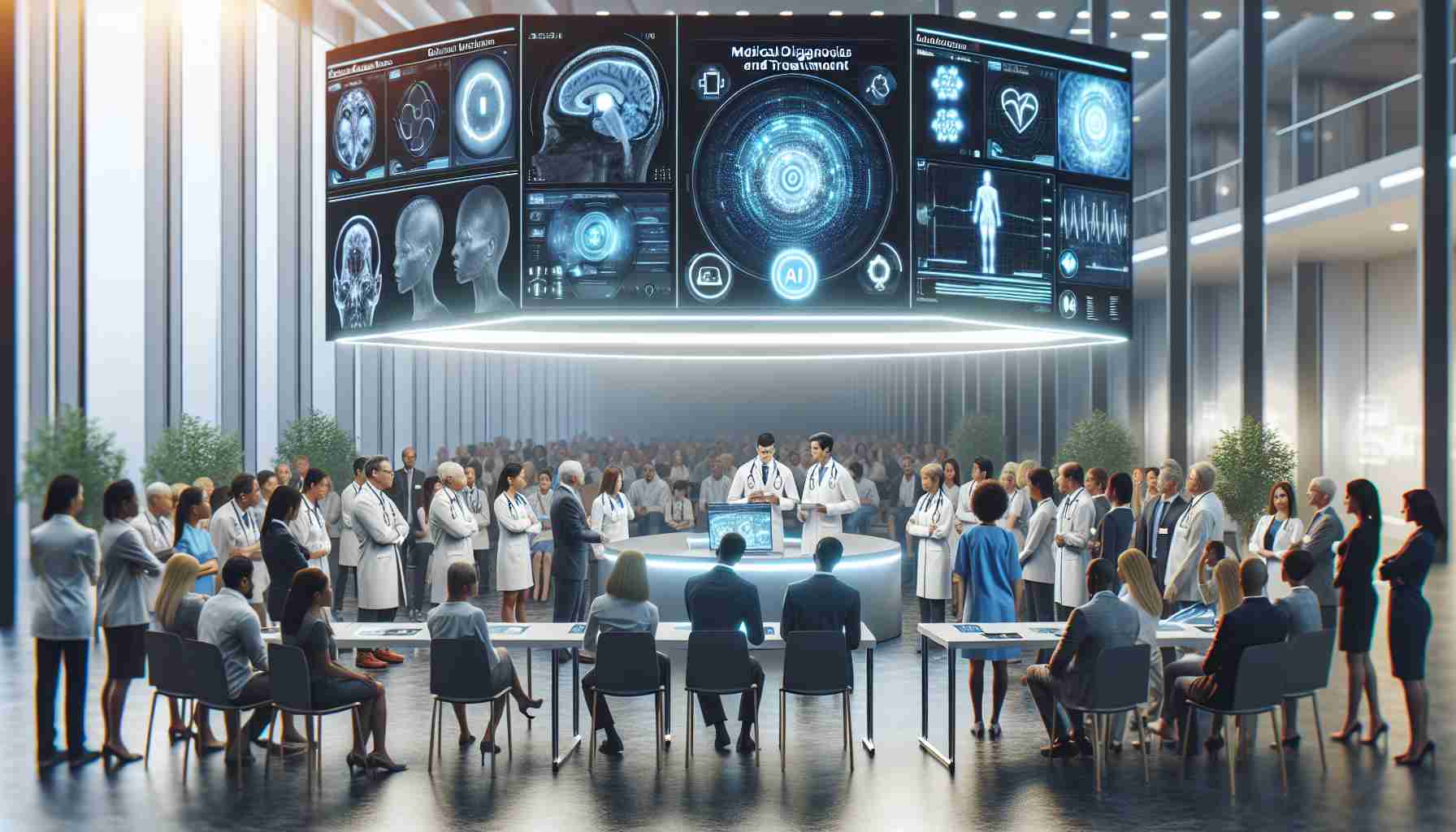Connecting Innovators in Healthcare: In a recent symposium organized by the Youth Science and Technology Development Center in collaboration with Thong Nhat Hospital and the University of Medicine and Pharmacy in Ho Chi Minh City, delegates focused on the intersection of artificial intelligence (AI) and digital transformation in medical diagnostics and treatment. The event served as a hub for young scientists, experts, and business professionals in the health sector to exchange ideas and promote the integration of advanced technologies in medical practices.
Encouraging Research and Collaboration: Seasoned researchers offered guidance to cultivate a vibrant research community, aiming to bring forth innovative products and stimulate academic discussions among professionals and students alike. The symposium emphasized building a cohesive network of scientific researchers that can contribute to the implementation of scientific and technological findings within the healthcare industry.
The Role of AI in Medical Imaging: At the forefront of the discussion, presenters highlighted the prominent role of AI in medical imaging, notably in the analysis of CT scans, MRIs, and X-rays. Emphasizing the technology’s assistant role rather than a replacement, speakers noted how AI aids radiologists by managing the large volume of readings required daily.
Challenges and Opportunities: Despite AI’s promising applications, challenges like data quantity and quality, comprehensive application, and lack of multi-disciplinary cooperation were discussed. These concerns underline the necessity for ongoing research and collaborative initiatives to fully harness AI’s potential in healthcare.
Research Dissemination and Recognition: The symposium also served as a platform for up-and-coming researchers to present their findings, with a special poster competition segment. Authors of 25 selected papers will have their work featured in the symposium proceedings, from which top presentations will be recognized for their excellence.
The event underscored the significance of digitalization and AI application in healthcare, particularly relevant in the context of the country’s digital transformation and the ongoing fourth industrial revolution. This integration is seen as crucial for the sustainable development of Vietnam’s healthcare sector.
Important Questions and Answers:
1. How is AI integrating into current medical diagnostic procedures?
AI is being used to analyze various medical images, such as CT scans, MRIs, and X-rays, more efficiently and accurately. It can process large volumes of medical data rapidly, assisting radiologists in diagnosis, predicting patient outcomes, and recommending personalized treatment plans.
2. What are key challenges in applying AI in medical diagnosis and treatment?
The challenges include ensuring the quality and quantity of data for AI algorithms, integrating the technology comprehensively into healthcare systems, and fostering multi-disciplinary cooperation among technologists, healthcare professionals, and policymakers.
3. What are some ethical concerns regarding AI in healthcare?
Some ethical concerns related to AI in healthcare include patient privacy, data security, biased algorithms due to non-representative training data, and the potential for reduced human oversight causing inadvertent harm.
Advantages of AI in Medical Diagnosis and Treatment:
– Increased Accuracy: AI can reduce human errors in reading and interpreting medical images.
– Efficiency: AI can analyze large data sets much faster than humans, thus expediting the diagnostic process.
– Precision Medicine: AI facilitates the development of personalized treatment by analyzing individual patient data.
Disadvantages of AI in Medical Diagnosis and Treatment:
– Data Privacy: There is a risk of data breaches which can compromise patient confidentiality.
– Dependence on Technology: Overreliance on AI may lead to skill degradation in healthcare professionals.
– Implementation Costs: The initial investment for integrating AI systems into healthcare is significant.
Key Challenges and Controversies:
– Data Annotation: Accurately annotated data is crucial for the training of AI algorithms, and this process can be resource-intensive.
– Interdisciplinary Communication: Effective use of AI requires clear communication and collaboration between technologists and healthcare providers.
– Regulatory Hurdles: There are challenges in creating an environment that allows for innovation while ensuring patient safety and adhering to regulatory requirements.
Suggested Related Links:
– World Health Organization
– U.S. National Library of Medicine
– AI in Healthcare
The key to successful implementation and maximization of benefits lies in addressing these challenges through ongoing research, collaborative efforts, and policy development, while always prioritizing patient outcomes and ethical considerations in the rapidly evolving landscape of AI in healthcare.

